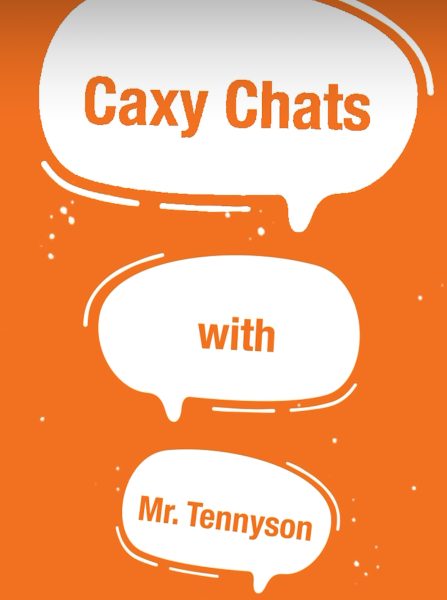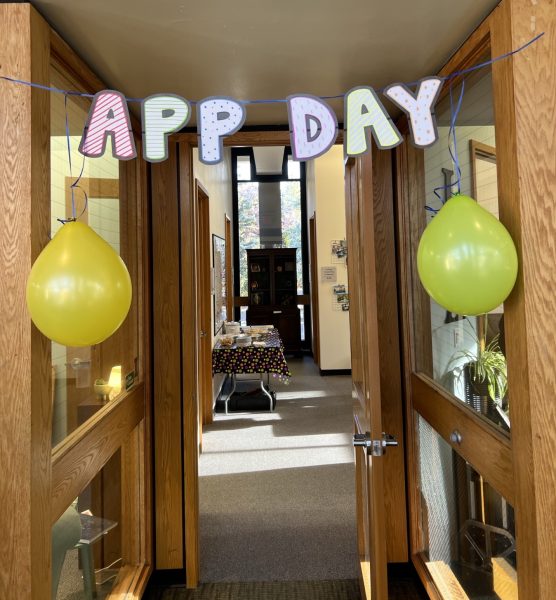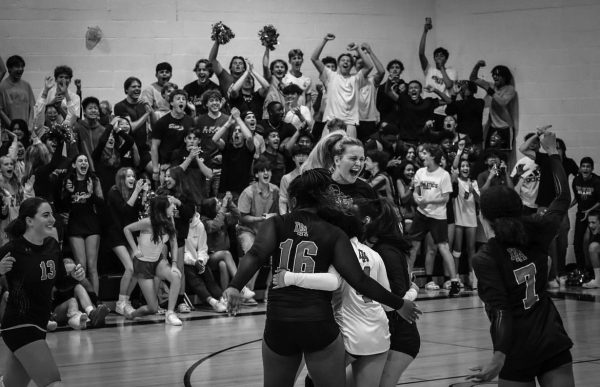What happened to the Head of School Symposium?
March 16, 2023
We need to bring back the Head of School Symposium. But first, we need to talk about what the Head of School Symposium was because, according to a recent school-wide survey, only 6.5% of current LFA students could tell you.
The Head of School Symposium (HOSS) was a school-wide tradition nearing its twentieth anniversary when interrupted by the pandemic. Its purpose, like many LFA initiatives, was to educate students and faculty members about different topics and regions of the world. What was unique about the HOSS was that it engaged learning outside of the classroom, through reading lists (like a book club), guest speakers, events, off-campus trips, and often international travel opportunities.
Head of School Chris Tennyson said that he appreciated how the HOSS promoted intellectual curiosity and allowed “us [faculty] to continue to learn alongside our students,” showing them that “learning doesn’t stop;” it is life-long.
Through the HOSS, learning explores contemporary themes that help our community better understand both those within it and the world outside it. Isabella Malacsina ‘23 believes that the HOSS is a great opportunity to “learn more about under-represented cultures in our community.”
Some past themes have included “Asia with attention to China” (2002-2003), “Gender Issues in the 21st Century” (2009-2010), and, most recently, “Inequality and Global Poverty” (2019-2020). The full list of past Symposiums is available online, at www.lfanet.org/academics/hos-symposium.
The HOSS can also be a meaningful experience for those who are close to the themes and are not necessarily learning anything new. It can be an opportunity to share knowledge, culture, and experience with the undivided attention and dedication of the entire LFA community.
Ted Golota volunteered to be a Faculty Chair for the “Russia: Revolution and Resurgence” Symposium (2018-2019) because, as he said, the theme was “deeply connected to my culture and people” and he was “very excited to give my knowledge and experience to the community and Symposium committee.”
Golota said that his proudest moments were “helping set up a display case with curios from the Soviet Union because it helped people see tangible things that they normally would not be able to touch, examine, or look at unless they were in a museum in Russia” as well as “teaching Lobachevskian Geometry because it helped expose the higher level math students to a Geometry previously unknown to many of them.”
Evidently, the HOSS offered the community opportunities to engage with topics and regions of the world that they otherwise would not have in their regularly scheduled classes. And while most LFA students do not know what they are missing, most faculty members do and are not making an effort to bring back the HOSS. In fact, in response to the question, “All things considered, do you think that the HOSS should return?” about 39.5% of faculty members reported “Maybe, with some improvements” and 5% of faculty members reported “No.” Why?
“Whole faculty buy-in and funding was a challenge,” Golota said, with the “main limitation” being that “it was time-consuming on top of everything else we do as teachers.” 19.8% of faculty members reported that the HOSS “asks too much of the faculty members involved.”
But the main concern, as reported by 61.5% of the surveyed faculty members, was that “students lack enthusiasm for and engagement in [HOSS] topics.”
Tennyson said that he is “all ears” because he believes that “there is value in bringing that [the HOSS] back” and wants “to make sure that it’s done right” as “the first time back is really important.” One of his ideas, which Golota and many others support, is to extend Symposium themes over a two-year period so the community can delve more deeply into themes and even take action upon them.
Other issues to address, according to faculty members, include the “burden on classroom teachers to incorporate the material into classes” and the need for “better organization,” especially “if we are going to give up class days for it [in reference to HOSS Day].”
However, these issues are relatively minor, “knowing the impact that it [HOSS] can have and knowing how great it can be for our community,” Tennyson said.
The Class of 2023 is the only current grade level at LFA to have experienced a HOSS (well, half of one), and will be leaving in a few months. If HOSS is going to “come back with an energy and an enthusiasm,” as Tennyson said, that will take student interest and involvement.
Looking forward, the vast majority of both students and faculty members offered positive feedback to the potential HOSS themes of “Digital Minimalism,” “Nutrition & Healthy Eating,” and “Climate Change & Environmental Sustainability.”
We need to bring back the Head of School Symposium. But first, we need to talk about what the Head of School Symposium could be.















